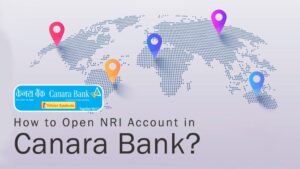
- Cash App launched Pools, a new tool that lets users plan, contribute to, and track group payments for shared expenses.
- Participants can contribute via Cash App, Apple Pay, or Google Pay, helping organizers avoid fronting costs and simplifying collection across different payment methods.
- Pools is part of Cash App’s broader move toward becoming a full-service, socially driven digital banking platform, especially for younger users.
Block-owned Cash App launched a new peer-to-peer (P2P) payment tool called Pools this week. The new group payments feature makes it easy for users to manage payments and track shared goals in a single place.
With Pools, users can make contributions to do things like plan a vacation with friends, chip in on a joint gift, or reimburse friends for a group dinner. The new tool allows group members to plan, collect, and track contributions to a shared expense before the event occurs. Because the expense is shared before the transaction occurs, no single person has to front the entire cost.
The organizer starts a group by creating a name, setting a goal amount, and inviting members to join the pool. Once the group is created, the organizer can track the group’s contributions, which helps remove unnecessary logistics and brings clarity to the amount each person has (or has not) contributed. Once the organizer is ready to close the pool, they can transfer the money into their Cash App balance.
Pools also helps in situations where participants have varying payment preferences. Organizers can not only invite members in-app via their $cashtag, but can also text or share a link to members, who can make a contribution using Apple Pay or Google Pay.

“Cash App has always made sending money between friends and family feel effortless, and we know that many of our customers already use the platform as a way to collect payments from groups,” said Cash App Head of Product Design Cameron Worboys. “With Pools, our customers now have a dedicated, easy-to-use solution for group payments: they can start a pool to collect the money in seconds, and then instantly transfer the funds to their Cash App balance when it’s time to pay.”
Cash App was founded by Block (then known as Square) in 2013. At the time, Cash App most directly competed with Braintree’s Venmo. Twelve years on, Cash App still has its roots in peer-to-peer payments, but has since diversified into a more robust digital banking platform that enables users to hold funds, deposit their paychecks, spend their money using a QR code or cash, invest, manage their Bitcoin, and file their taxes. With more than 57 million monthly active users in its network, Cash App plans to introduce more group features and services in the coming months.
“For younger customers in particular, managing money is often an inherently social experience that requires extensive discussion, planning, and collaboration between groups. Combining the scale of Cash App’s network with our robust suite of banking and commerce tools, we’re excited to introduce new solutions tailored to the next generation and their financial lives,” added Worboys.
Pools is currently available to a select group of Cash App customers. The company is planning to make it more broadly available in the coming months with an aim to reach all Cash App customers.
Cash App’s launch of Pools reflects the company’s shift from simple money transfers to a more social, full-stack financial experience. As users increasingly treat money as a shared experience, tools like Pools show how fintech is adapting to a more shared, communal economy.
Photo by Sarah Schorer
Views: 336


